Combined fleet and business registrations saw a slight drop of 1% in November, while battery electric vehicles (BEVs) secured 25% market share driven by car manufacturer discounting.
The latest Society of Motor Manufacturers and Traders (SMMT) data shows that fleet and business registrations totalled 95,114 units in November and, while this segment recorded a slight drop, it still outpaced overall registrations for the month, which fell by 1.9% to 153,610 units.
Retail volumes continue to struggle with a 3.3% drop during the same month.
November saw double-digit falls in registrations of petrol (down 17.7%) and diesel (down 10.1%) cars, with petrol remaining the most popular powertrain.
Hybrid and plug-in hybrid uptake also declined, down by 3.6% and 1.2% respectively.
BEV registrations, meanwhile, rose for an eleventh successive month, up 58.4% to 38,581 units, representing 25.1% of the overall market but driven by what the SMMT describes as “heavy manufacturer discounting”.
With the best market share since December 2022, November is just the second month this year in which BEV uptake has reached mandated levels, albeit against the backdrop of a declining overall market.
The zero emissions vehicle (ZEV) mandate, which requires 22% of all UK new car sales to be fully electric this year, is subject to a fast track Government consultation.
The Government has confirmed that, while it will be consulting on how the ZEV is implemented, it said the target of 28% market share for BEV next year and then up towards 100% over the next several years are not expected to change.
According to the latest industry outlook, BEV registrations will need to grow by an additional 53% in 2025 if next year’s 28% mandated target is to be met – equivalent to 90,000 more businesses and consumers making the switch than the industry outlook expects.
Mike Hawes, SMMT chief executive, said: “Manufacturers are investing at unprecedented levels to bring new zero emission models to market and spending billions on compelling offers.
“Such incentives are unsustainable – industry cannot deliver the UK’s world-leading ambitions alone.
“It is right, therefore, that the Government urgently reviews the market regulation and the support necessary to drive it, given EV registrations need to rise by over a half next year.
“Ambitious regulation, a bold plan for incentives and accelerated infrastructure rollout are essential for success, else UK jobs, investment and decarbonisation will be at further risk.”
EV sales propped up by unsustainable discounting and huge depreciation
Toby Poston, BVRLA director of corporate affairs, said that while ZEV registrations are heading in the right direction, the market still remains imbalanced.
He said: “Electric vehicle sales are still being propped up by unsustainable levels of discounting from OEMs and the huge depreciation being absorbed by leasing companies.
“Demand is still too fragile on the consumer side, which is a critical piece of the puzzle if the targets are to be hit year on year.”
Poston said new EV registrations are only half of the story. He said the levels of depreciation being seen in the used market for EVs is “threatening to bring both new and used EV markets to a standstill” .
He added: “The leasing sector accounts for roughly two in three new BEV vehicles purchased.
“The sector has spent an estimated £32 billion on new BEVs since 2018.
“In return, it has been left to shoulder the cost of collapsing used BEV values and high depreciation. It cannot afford to do that indefinitely.
“A healthy new car market does not exist without a buoyant used one to absorb its supply. If the UK is to meet its mandate targets, Government support for used EVs is overdue.”
Jon Lawes, managing director at Novuna Vehicle Solutions, says that the ZEV mandate is not fit for purpose and will face continued difficulties as thresholds rise further in 2025.
“Industry still supports the ambition to ramp up EV adoption but there are two trade-off’s the Government can no longer ignore,” he added.
“Policymakers must either revisit the structure of quotas but accept a slower transition, or soften penalties on manufacturers but accept the need for more adoption incentives.
“The Government needs to deliver a swift conclusion to its review, introducing more fiscal support and ending any disconnect with the 2030 ICE phase-out timeline, which will otherwise continue weighing on the used-EV market.”
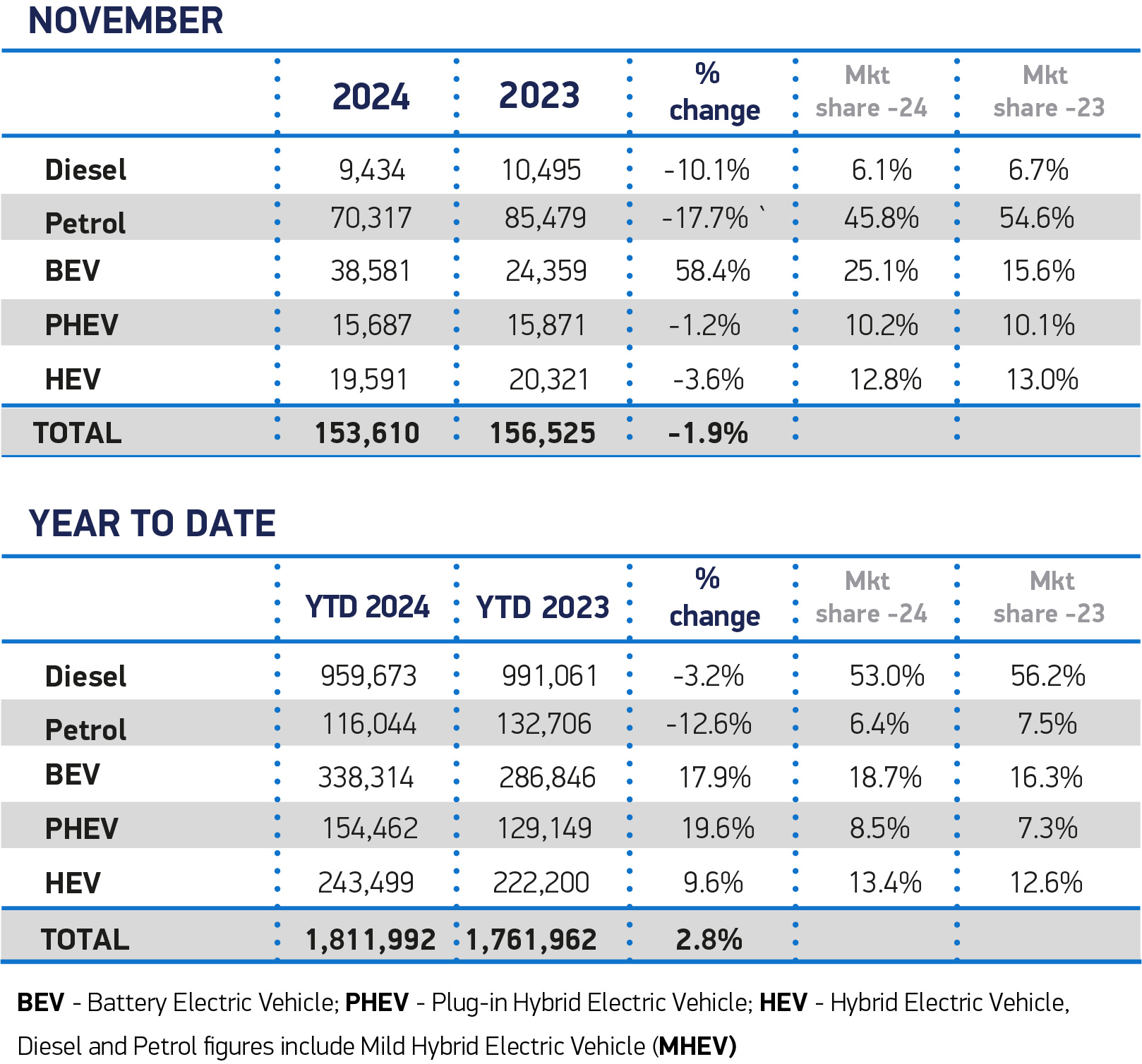
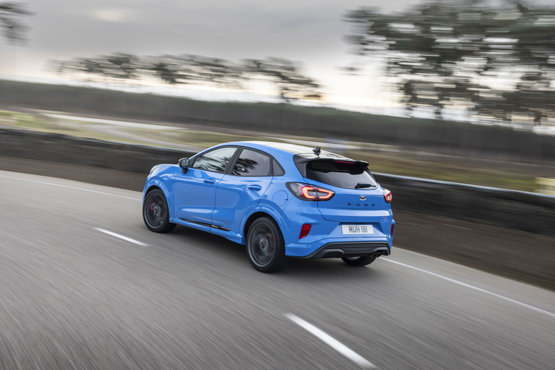
The Mini Cooper dominated registrations in November, while the ever popular Tesla Model Y continues to drive EV sales across the UK with a third place in November and top 10 position year-to-date.
The Ford Puma continues to step into the Fiesta's previous role as the UK's most popular vehicle year-to-date, with 45,538 registrations over the last 11 months.
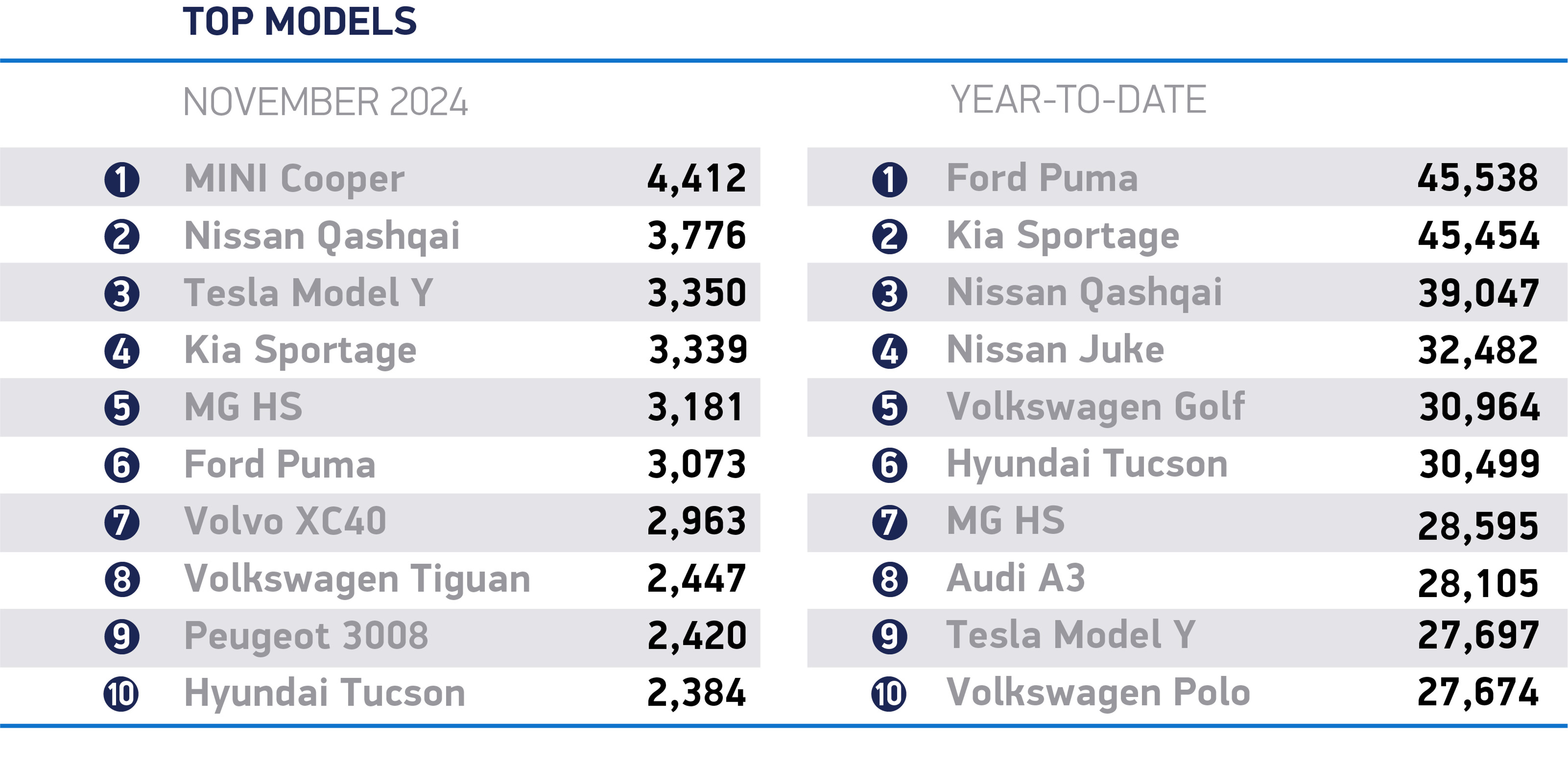
Car manufacturers to avoid ZEV fines
New Automotive, transport research organisation, said the the performance of the UK’s EV market means that the car industry’s ZEV mandate credit surplus has almost doubled, meaning that no manufacturer will need to pay fines or make buyout payments to the Government this year.
Industry out-performance means that manufacturers who fall short of ZEV targets have a choice of nine brands from whom to buy credits. The glut of credits means that this is a buyer’s market.
For example every firm with a deficit could close it by buying from Tesla, BMW, Mercedes and Hyundai alone.
When it comes to manufacturers, domestic firms are leading the way. Mini, who operate out of Oxford, saw their electric models equate to 37% of their total new car sales, with the BMW Group selling more EVs than Tesla last month.
Other strong performers throughout November include Jaguar (with 36% of total car sales being electric), Vauxhall (36%), Peugeot (29%), Renault (27%), MG (27%) and Skoda (23%). Even lagging firms like VW and Ford exceeded their targets, with their EV market share totally 21% and 19% respectively.
Ben Nelmes, New AutoMotive chief executive, said: "Thanks to the investments and efforts made by carmakers, UK motorists now have more electric options at more competitive prices than ever before.
“This impressive progress is the result of the combination of ambitious and flexible EV targets, and significant tax breaks for electric cars. This combination of targets and incentives is putting the UK in the fast lane to greater energy independence and cheaper, cleaner motoring.
“November’s strong sales are accompanied by billions of investment in charging infrastructure and electric vehicle manufacturing. As global electric car sales wax and wane, the UK’s car market is heading in one direction - and fast. Ministers must not pull the rug under this progress as they revisit UK policy on EVs.”
New Automotive ZEV mandate tracker figures
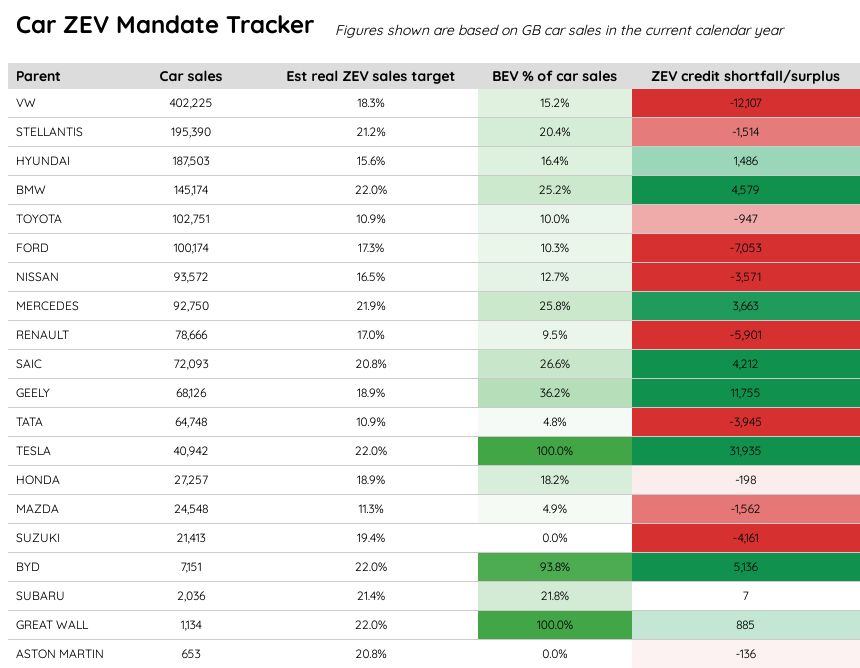



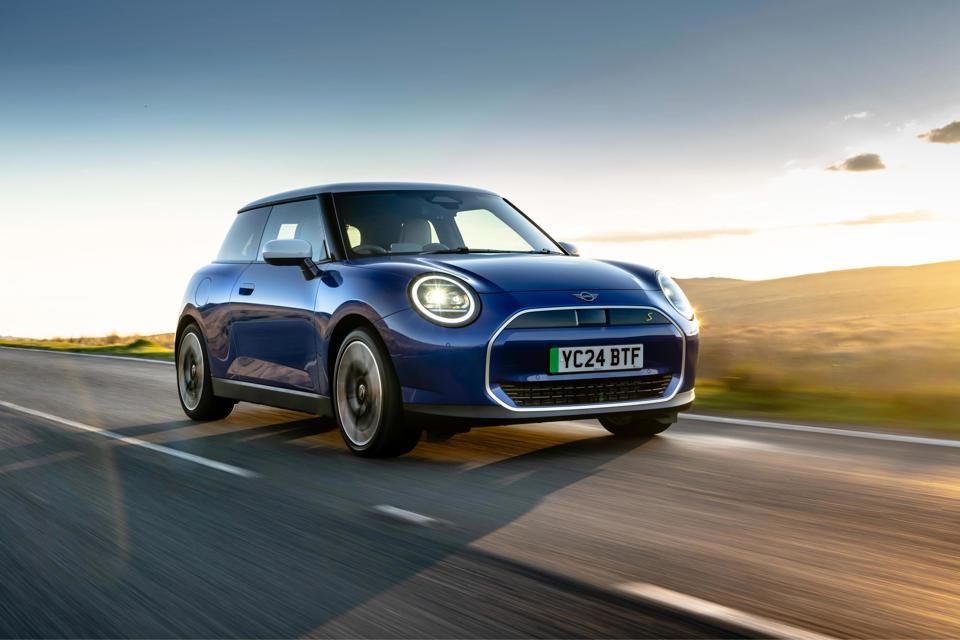















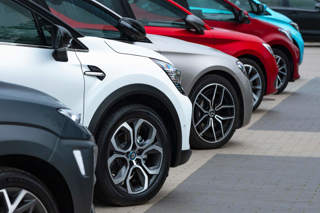


Login to comment
Comments
No comments have been made yet.